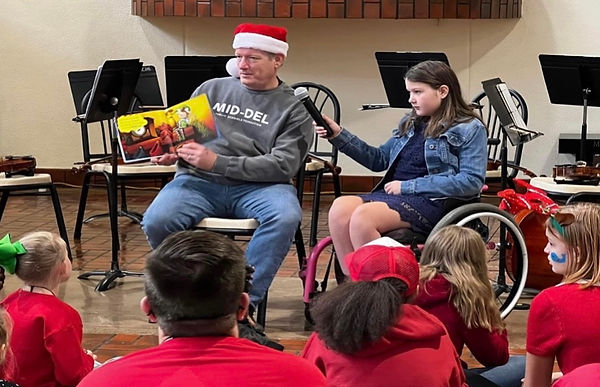Special Education In Oklahoma
Oklahoma’s Ban on Books
Hurts Special Education
By: Lauryn Thomas, Amelia Jáuregui, Esther Thomas, and Olivia Bloomfield
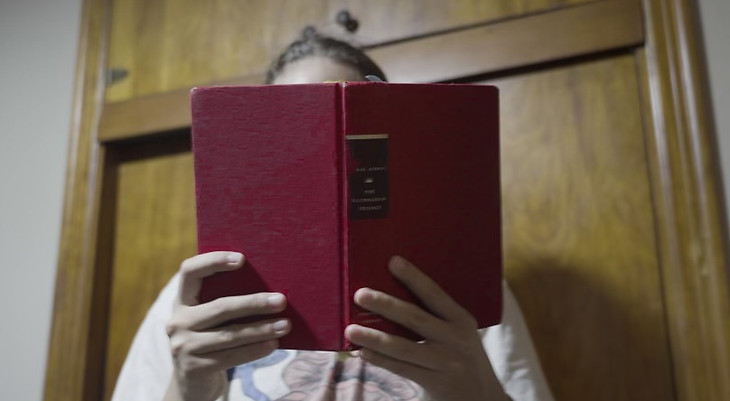
Pictured from left to right: Kelsie Tate, Emma Edwards, Kaylee Linsenmeyer, and Karie Linsenmeyer
“If we want to be the change that we want to see in our children’s lives then that first requires us as parents to take action,” said mother of special education child Danielle Johnson. “That action is exposing your kids to different cultures, letting them watch the news with you, and simply telling them the truth about history.”
The call for parents to take action with educating their students has been especially prominent in discussions about students in special education programs or with specific learning disabilities (SLD).
This call to action is due to the Oklahoma’s recent ban on books in primary and secondary public schools.
Santa Fe South Alternative Charter School Assistant Director, Sheila Patton, states that shielding students who have previously struggled with disabilities from facts about the past will only create more disadvantages for them that they will face in adulthood.
“Many of the events and topics discussed in those banned books are still happening today whether people choose to believe it or not,” said Patton. “Censoring books creates the biggest disadvantage that any person can have, that disadvantage is ignorance of the real world.”
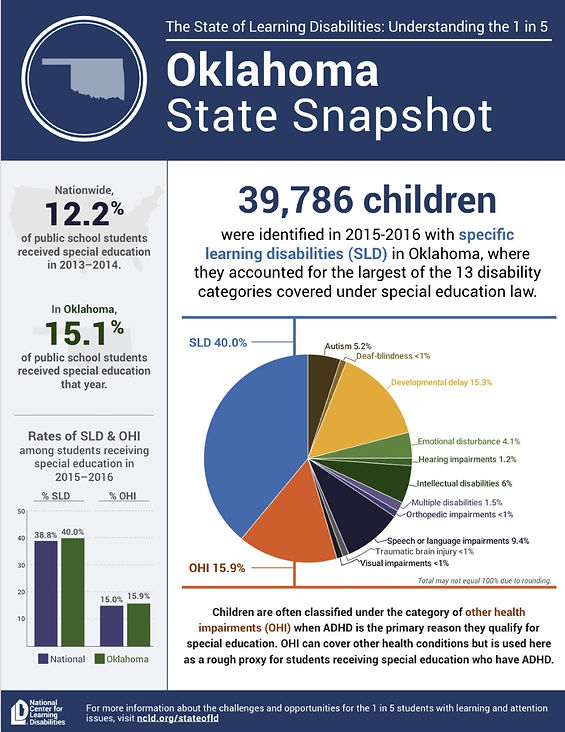
According to the National Center for Learning Disabilities, “In 2016, 39,786 children were identified with SLD in Oklahoma, where they accounted for the largest of 13 disability categories covered under special education law.
According to Stillwater News Press, “While 16 % of Oklahoma students, which is above the national average, needed special education services from 2016-2017, the state only employed 3,450 special education teachers with little signs of an increase in 2022.”
“Our special education teachers do a great job when their workload is what it should be,” said Putnam City school teacher, Blondell Ford. “Unfortunately, we are three special education teachers short, so their workload has doubled beyond the quota mandated by the state.”
A common theme of the banned books list is that over half touch on the topics of Critical Race Theory and LGBTQ + relationships. According to the census.gov, As of 2020, 36.5% of citizens identified as minorities in Oklahoma. According to Oklahoma Rehabilitation Services, of these minorities, 17% of Native American students, 16% of African Americans students, 13% of bi-racial students, and 13% of Hispanic and Pacific Islander students reported having learning disabilities. Danielle Johnson is one of the many parents who has a child attending school with a learning disability.
“My greatest fear as a mom and educator is for my little boy and children who look like him to go to school and believe that their history doesn’t matter,” said Johnson. “Our history matters because it is the root of our power and perseverance, and that is what scares people the most.”
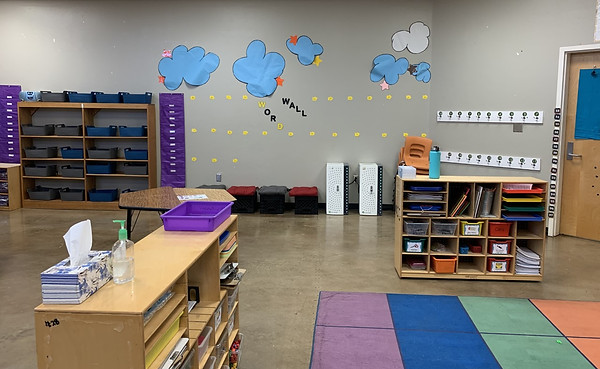
“Teachers are afraid to expose students to ideas and critical thinking, and without critical thinking, you are left with poorly educated drones that don’t understand the world around them,” Mid-Del Superintendent Rick Cobb said. “That’s what’s scariest about the ban on books.”
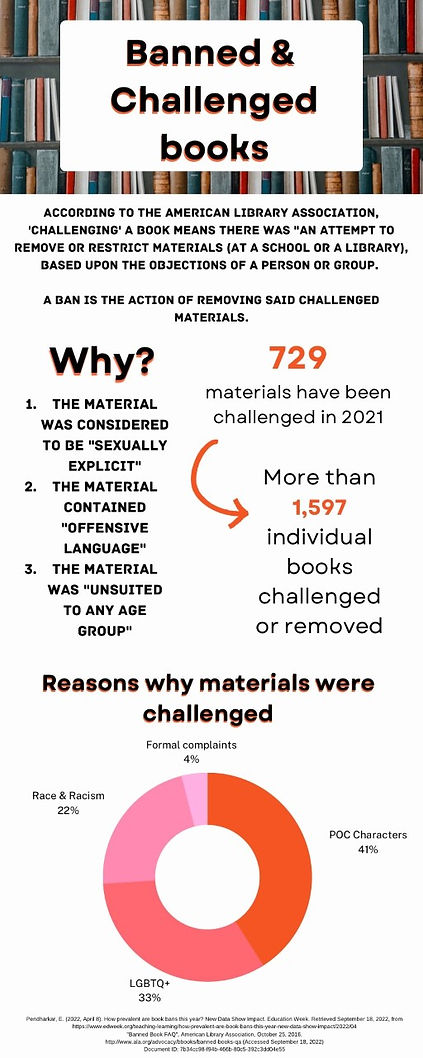
On May 10, 2021, the future of Oklahoma education changed forever when Gov. Kevin Stitt passed House Bill 1775. “This bill prohibits the teaching that one race or sex is inherently superior to another race or sex and ultimately prohibits the reading about it in public schools,” according to OSSBA.org.
While the intent of this bill was to create spaces for students to learn without racial bias, according to sde.ok.gov, some educators fear that this bill will blind students to the racial history that has shaped America, ultimately creating a greater learning disadvantage for students.
Some of the most notable banned books include: To Kill a Mockingbird by Harper Lee, I Know Why the Caged Bird Sings by Maya Angelou, Narrative of the Life of Frederick Douglass, and Their Eyes Were Watching God by Zora Neal Hurston, which notably shed light on the experiences of Black people in America.
This restriction on literature has raised concern among some Oklahoma educators. Specifically, the concern of how censoring the past will affect a student’s ability to understand the future.
“This is my 30th year in public education and I believe that our mission hasn’t changed; that mission is doing everything that we possibly can to ensure that students move forward and learn to the best of their ability,” Cobb said. “Censoring what has happened in the past will only make the reality of the future harder for students to comprehend and grasp.”
Faced with the challenge of ensuring that their students are taught historic events in school, educators and parents think of ways on how Oklahomans can help combat the issue of banning books. One of those ways is getting out and voting.
“I think we need to get out, vote, and do our research before putting people into office,” Oklahoma Educator Riley Martin said. “We need to evaluate their values and see if what they truly stand for is what’s going to benefit our students the most.”
Cobb also stated the importance of knowing the candidates that we vote into office.
“Those candidates don’t have the best interest of public education in mind,” said Cobb. “And if you don’t have the best interest of public education in mind, then you don’t have the best interest of students in mind.
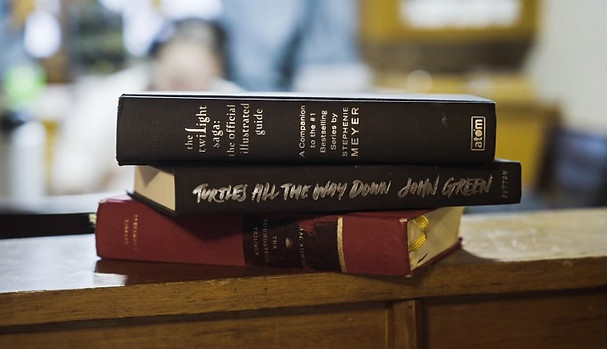
Another way educators and parents have suggested to combat the issue of book censorship in Oklahoma is by parents personally teaching history to their children.
Though there have been suggestions made about how to combat the issue of banned books in Oklahoma, the battle is far from over.
Norman Oklahoma teacher, Summer Boismier, made local headlines as she was told she was required to attend a disciplinary hearing after she shared a QR code with her students linking to the Brooklyn Public Library’s Books Unbanned website, according to okcfox.com.
Though the future of Oklahoma Education may seem blurry, students have the opportunity to clear their path by letting their curiosity lead them to the books they want to read.
“Let your curiosity take you to the books you are interested in reading,” said Cobb. “Because when you find the truth for yourself, no one can take it away from you.”
